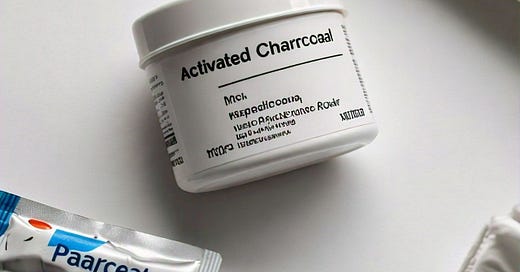Activated Charcoal and Paracetamol Overdose: What You Need to Know
Hey everyone! If you're diving into the world of medicine and public health, you've probably come across the topic of activated charcoal and its role in treating drug overdoses. Today, let’s focus on how it works specifically for paracetamol (acetaminophen) overdoses and what happens when there's a delay in treatment.
What’s the Deal with Activated Charcoal?
Activated charcoal is a powerhouse in emergency medicine. It helps absorb drugs in the stomach, preventing them from entering the bloodstream. This is super important for managing overdoses. For paracetamol, which can be harmful in large doses, activated charcoal can be a lifesaver—if given in time.
Timing is Everything
The golden rule? Get activated charcoal within 1 hour of ingestion. This is when it’s most effective because the drug is still in the stomach and early intestines, where charcoal can easily bind to it. After this window, the effectiveness drops as more drug gets absorbed into the bloodstream.
What If It’s Been a While?
Life isn’t always perfect, and sometimes patients don’t get to the hospital right away. So, what happens if there’s a delay? Recent research shows that while activated charcoal is less effective after 1 hour, it still helps if administered up to 4 hours later. It won’t be as powerful as if given early, but it can still reduce the amount of paracetamol that gets absorbed.
Why Should You Care?
For us future health professionals and USMLE aspirants, understanding the nuances of treatments like activated charcoal is crucial. Knowing that even delayed treatment can have benefits helps us make better decisions in real-world scenarios. It’s all about optimizing patient care, no matter the timing.
Key Takeaway
Activated charcoal is a go-to for treating paracetamol overdoses, and it works best when given within an hour. But don’t lose hope if there’s a delay—administering it up to 4 hours later can still offer some benefit. This knowledge is handy for making quick, informed decisions and improving patient outcomes in emergencies.
Stay curious and keep learning! Whether you're hitting the books for the USMLE or diving into public health studies, these insights can make a real difference in your future medical practice.


